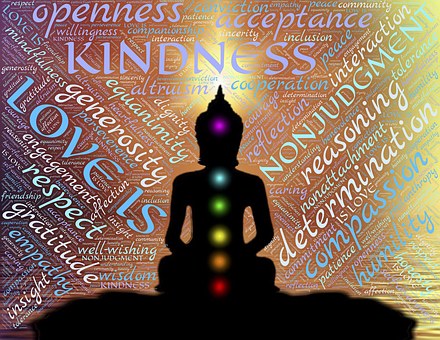The quality of patience goes a long way toward your goal of creating a more peaceful and loving self. The more patient you are, the more accepting you will be of what is, rather than insisting that life be exactly as you would like it to be. Without patience, life is extremely frustrating. You are easily annoyed, bothered, and irritated. Patience adds a dimension of ease and acceptance to your life.
It's essential for inner peace. Becoming more patient involves opening your heart to the present moment, even if you don't like it. If you are stuck in a traffic jam, late for an appointment, opening to the moment would mean catching yourself building a mental snowball before your thinking got out of hand and gently reminding yourself to relax. It might also be a good time to breathe as well as an opportunity to remind yourself that, in the bigger scheme of things, being late is "small stuff." Patience also involves seeing the innocence in others.
My wife, Kris, and I have two young children ages four and seven. On many occasions while writing this book, our four-year-old daughter has walked into my office and interrupted my work, which can be disruptive to a writer. What I have learned to do (most of the time) is to see the innocence in her behavior rather than to focus on the potential implications of her interruption ("I won't get my work done, I'll lose my train of thought, this was my only opportunity to write today," and so forth). I remind myself why she is coming to see me - because she loves me, not because she is conspiring to ruin my work. When I remember to see the innocence, I immediately bring forth a feeling of patience, and my attention is brought back to the moment.
Any irritation that may have been building is eliminated and I'm reminded, once again, of how fortunate I am to have such beautiful children. I have found that, if you look deeply enough, you can almost always see the innocence in other people as well as in potentially frustrating situations.
When you do, you will become a more patient and peaceful person and, in some strange way, you begin to enjoy many of the moments that used to frustrate you.























.webp)






















